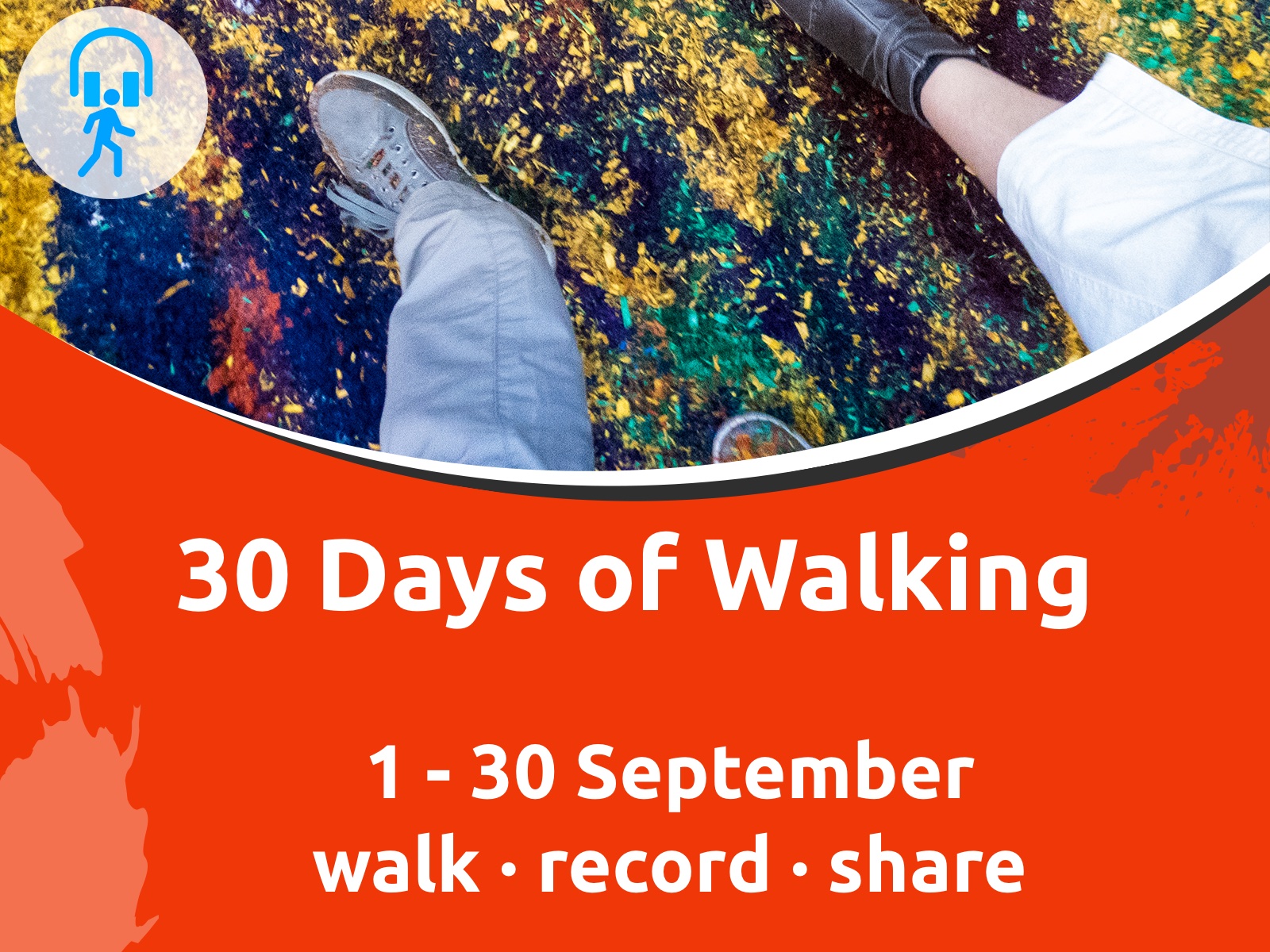
30 Days of Walking is a collaborative sound walk in which everyone can participate, anywhere in the world.
You are invited to participate in a project involving scores, perhaps hundreds, or participants, with the aim of creating a 30-day, collaborative, sound walk.
1. Participants, you, select one or more ‘time slots’ during the month of September.
2. You commit to going for a walk, during this time slot, for the duration of the period you indicated.
3. You make an audio recording during your walk. This can be a recording of your full walk as a whole, or of just a short portion, or anywhere in between.
4. After your walk, you upload your audio recording.
After September, we expect to have created a continuous soundscape with contributions from all over the world, accessible to all.
Credits
Hosted by: walk · listen · create

